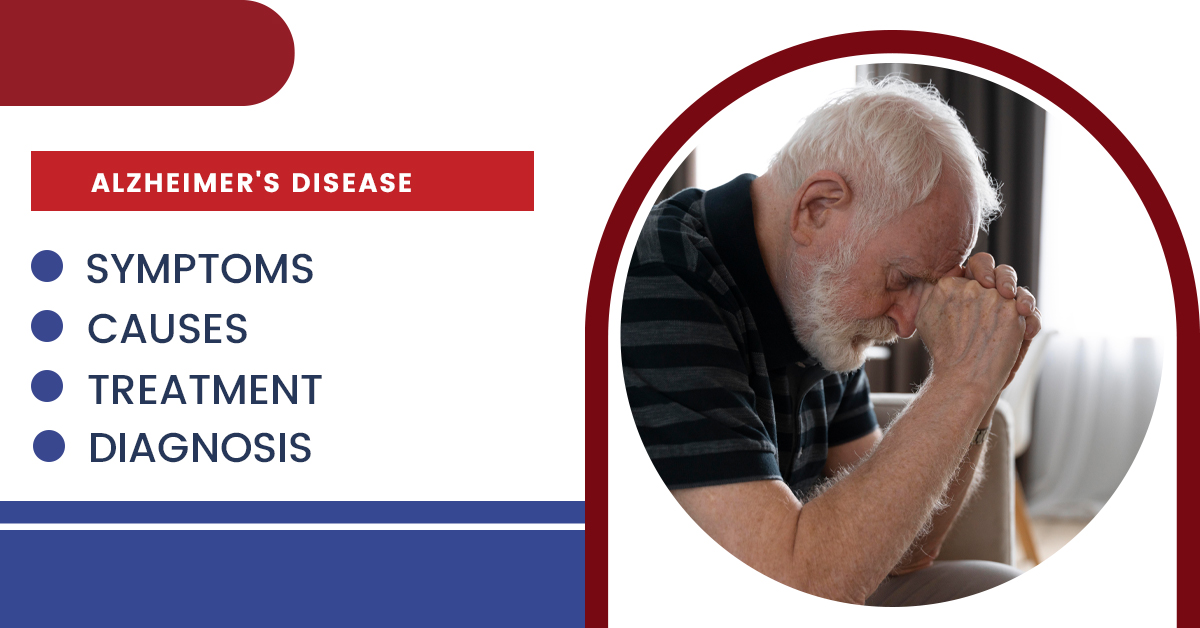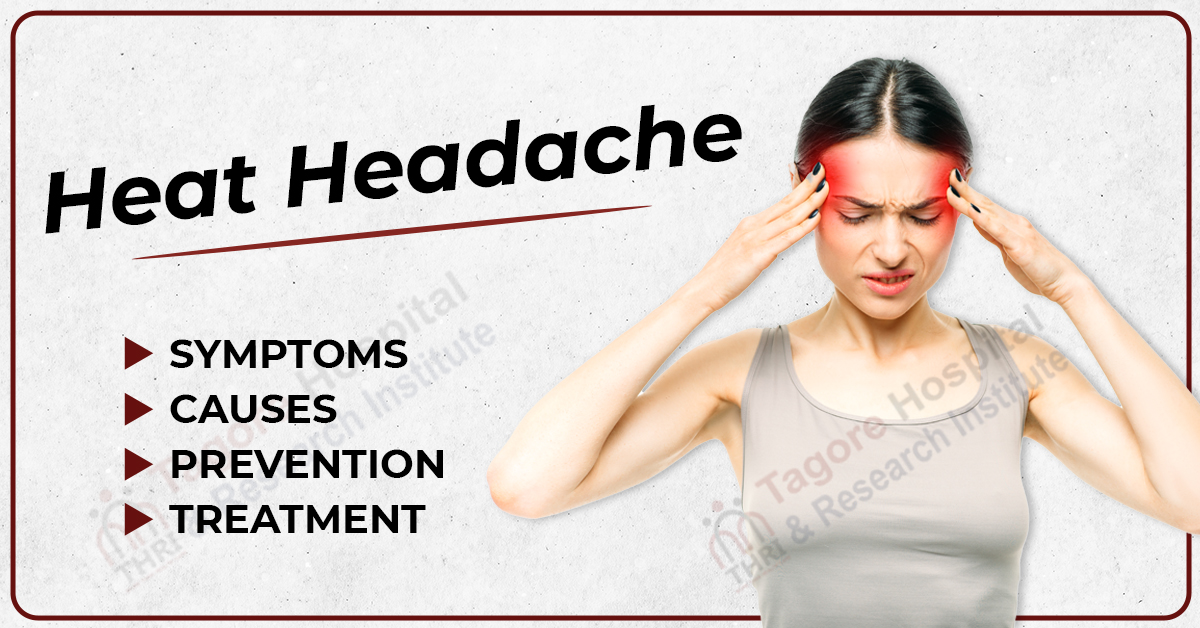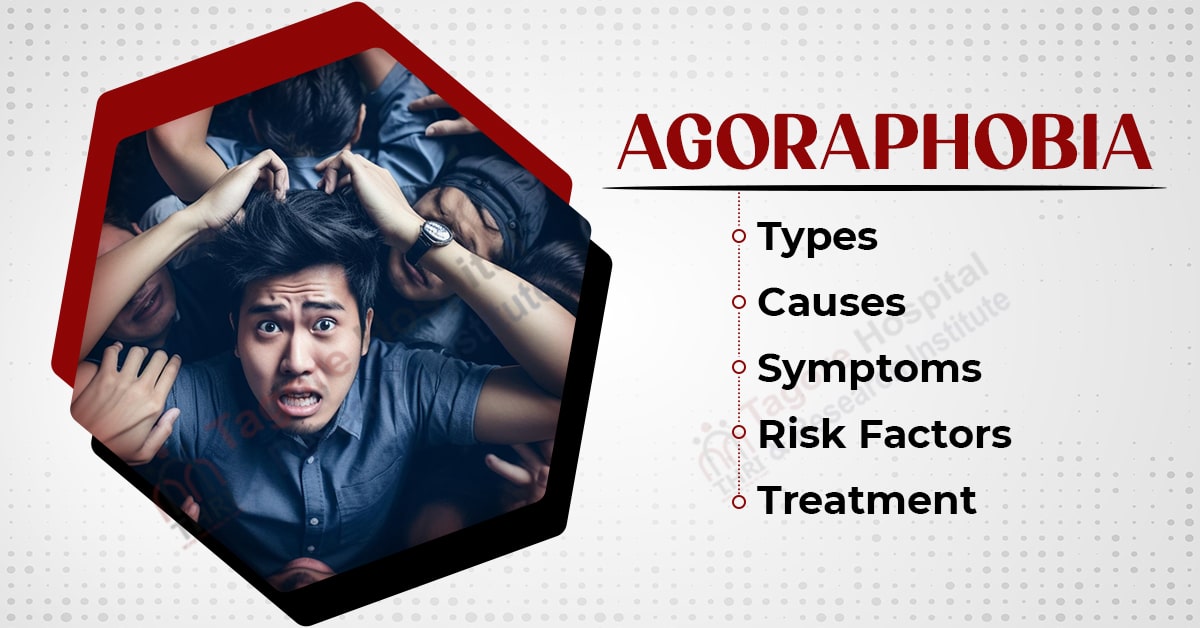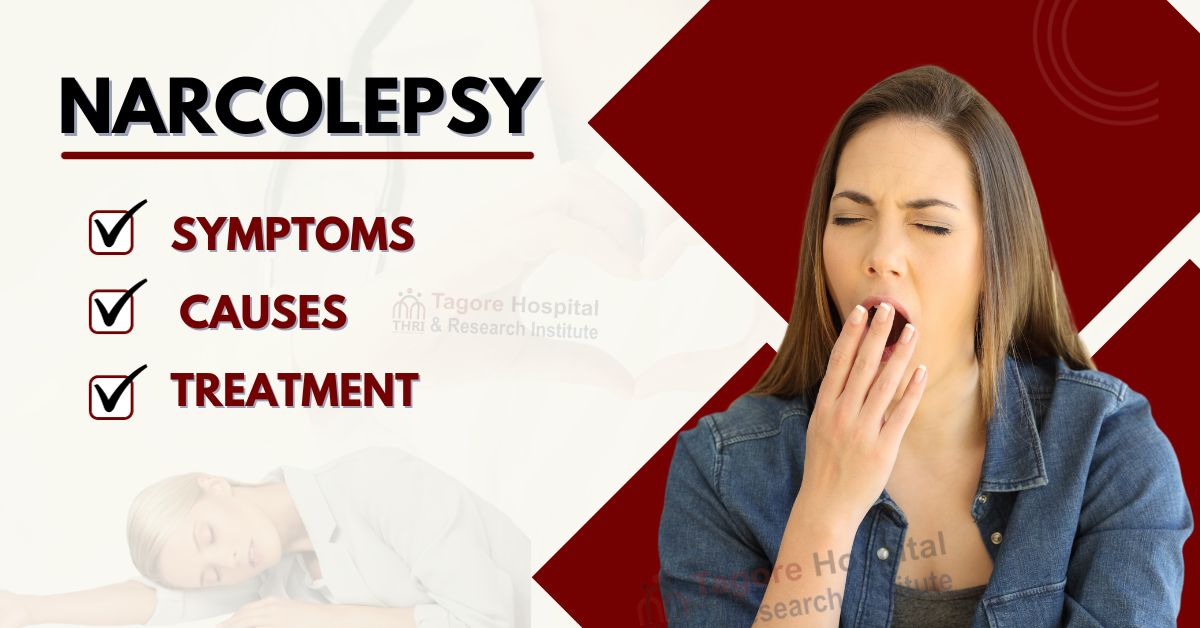- By THRI admin
- Posted September 29, 2022
What is Alzheimer’s Disease?
The brain shrinks and brain cells die as a result of Alzheimer's disease, a neurologic degenerative illness. The most prevalent kind of dementia, which is characterised by a steady deterioration in thinking, acting, and social abilities and impairs a person's capacity for independent functioning, is Alzheimer's disease.
The Alzheimer's Association estimates that 60 to 80 per cent of dementia cases are caused by Alzheimer's disease. The condition is typically diagnosed in patients over the age of 65. Alzheimer's disease is typically described as having an "early onset" or "younger onset" if it is discovered earlier.
Early signs of the illness include forgetting previous interactions or events. A person with Alzheimer's disease will have severe memory loss as the condition worsens and lose the capacity to do basic tasks.
The symptoms may momentarily become better or get worse less quickly with medication. These therapies occasionally enable persons with Alzheimer's disease to maintain independence and optimise function. Numerous services and programmes are available to assist those who have Alzheimer's disease and those who care for them.
Types of Alzheimer’s Disease:
The two primary varieties of Alzheimer's disease are:
- The most prevalent type of Alzheimer's usually develops after the age of 65. Its origin is not entirely known.
- Dementia brought on by an extremely rare genetic illness known as familial Alzheimer's disease, often known as "hereditary," typically affects adults in their 40s and 50s. Dementia with younger onset is what this is.
What are the Symptoms of Alzheimer’s Disease?
Alzheimer's disease symptoms differ from person to person and get worse over time. The disease's symptoms include:
- memory decline One of the initial signs of Alzheimer's disease is typically this.
- putting things in strange places.
- confusion over the timing, place, and occurrences.
- repeating inquiries
- difficulty budgeting and paying debts.
- familiar tasks are harder to execute or take longer.
- walking aimlessly.
- being unable to fall asleep.
- psychological and behavioural changes, such as agitation, anxiety, and hostility.
- having irrational concerns about caregivers, relatives, and friends.
- poor decision-making or reasoning
- having trouble recognising friends and family.
- Having trouble picking up new information and recalling current events.
- multistep chores, including dressing or cooking, are challenging.
- experiencing delusions, paranoia, or hallucinations.
- finding the correct words to say or speak.
- difficulty with writing, reading, and math.
- walking challenge.
- Having trouble swallowing.
Depending on how severe the symptoms are, Alzheimer's disease is sometimes divided into three stages:
- Early indicators of dementia are seen in mild Alzheimer's disease: no additional support is typically required.
- Alzheimer's disease is moderate: help is certainly needed and symptoms are tough to deal with.
- With advanced Alzheimer's disease, ongoing assistance may be required with all everyday activities.
- Depending on whether parts of the brain are injured, symptoms will develop differently in each person. Additionally, a person's symptoms may alter from day to day and worse as a result of stress, illness, or fatigue.
Causes of Alzheimer’s Disease:
Alzheimer's is caused by the death of brain cells, much like all other varieties of dementia. Because it is a neurodegenerative condition, brain cells gradually start to die.
When a person develops Alzheimer's disease, their brain tissue loses nerve cells and connections one by one, and small deposits called plaques and tangles accumulate on the nerve tissue
Between the ageing brain cells, plaques form. They are created from beta-amyloid protein. In the meantime, the tangles develop inside the nerve cells. They are created from tau, a different protein.
Alzheimer's disease is characterised by many processes, including the buildup of amyloid plaques, neurofibrillary tangles, and neuronal degeneration.
- Outside of the brain cells, amyloid plaques are deposits that stop the brain from properly transmitting messages.
- Neurofibrillary tangles are deposits that form inside brain cells; by preventing the flow of food and energy, they destroy the cells and cause dementia that gets worse over time.
- The cortex, the outer layer of the brain that is essential for memory, language, and judgement, shrinks as a result of neuronal death; Alzheimer's disease is characterised by this shrinkage.
The majority of the time, scientists are still unsure of what triggers the plaques, tangles, and other molecular changes linked to sporadic Alzheimer's disease.
Environmental elements, chemical imbalances, or deficiencies in the immune system are thought to be the reasons.
The reasons for these alterations are not entirely understood by researchers.
Risk Factors of Alzheimer’s Disease:
Although there is no one particular cause of Alzheimer's disease, experts have identified several risk factors, such as:
- Age. The average age of those who develop Alzheimer's disease is 65 or higher.
- Family background. You are more prone to contract the ailment if a close relative has already done so.
- Genetics. Specific genes have been connected to Alzheimer's disease.
Other potential risk elements consist of a history of:
- Depression.
- Smoking.
- illness of the heart.
- severe brain injury in the past.
Complications of Alzheimer’s Disease
Your loved one may develop one or more AD problems despite receiving treatment.
- agitation and restlessness.
- bowel and bladder issues.
- Depression.
- Falling-related risk rises.
- Infections.
- Wandering.
Prevention of Alzheimer’s Disease
Alzheimer's disease cannot be entirely avoided. However, taking good care of your health can lower your risk of developing Alzheimer's disease:
- Your heart: Maintain a balanced diet and abstain from smoking because what's excellent for your heart is also beneficial for your brain.
- Your Body: Maintain an active lifestyle to boost blood flow to the brain regularly.
- Your mind: Keeping your mind busy by engaging in activities like crossword puzzles and puzzle solving will help you socialise, learn new things like a language, and strengthen the connections between your brain cells.
How Is Alzheimer’s Disease Diagnosed?
Before the discovery of the telltale plaques and tangles in the brain under a microscope, Alzheimer's disease could not be diagnosed until the patient had passed away. Doctors and researchers can now more accurately diagnose Alzheimer's disease in an individual throughout their lifetime. Plaques and tangles can be detected using biomarkers, such as specific kinds of PET scans or measuring the levels of the proteins amyloid and tau in the blood and cerebral spinal fluid.
Tests A diagnostic work-up would most likely include the tests listed below:
1. Physical and neurological exam
Your doctor will likely assess the following during a physical examination to gauge your overall level of neurological health:
- Reflexes.
- Strength and muscle tone.
- being able to stand up from a chair and move around the room.
- Senses of hearing and sight.
- Coordination.
- Balance.
2. Lab tests
Your doctor may use blood tests to rule out further possible reasons for forgetfulness and disorientation, such as a thyroid condition or vitamin deficits.
a. Mental status and neuropsychological testing
To evaluate your memory and other cognitive abilities, your doctor could provide a quick mental status test. In comparison to people of a similar age and educational level, longer neuropsychological testing procedures may disclose more information about the mental function. These tests can help with diagnosis and serve as a starting point for following symptom progression in the future.
b. Brain imaging
Images of the brain are currently mostly used to identify outward abnormalities linked to diseases other than Alzheimer's disease that may affect cognitive function, such as strokes, trauma, or tumours. Doctors may be able to identify particular brain alterations brought on by Alzheimer's disease thanks to new imaging apps, which are present mostly utilised in large hospitals or clinical studies.
brain structures can be imaged using the following methods:
- imaging with magnetic resonance (MRI). Sharp images of the brain are produced by MRI using radio waves and a strong magnetic field. MRI scans can rule out other diseases while also detecting brain shrinkage in regions of the brain linked to Alzheimer's disease. In most cases, an MRI is favoured over a CT scan when evaluating dementia.
- computer-aided imaging (CT). A cross-sectional image (slice) of your brain is produced by a CT scan, a sophisticated X-ray technology. Usually, it's used to rule out brain traumas, strokes, and tumours.
It is possible to visualise disease processes using positron emission tomography (PET). During a PET scan, a low-level radioactive tracer is injected into the blood to expose a particular component of the brain. PET imaging could include any of the following:
- Brain regions with inadequate food metabolization are seen on fluorodeoxyglucose (FDG) PET images. Finding patterns of deterioration or areas with poor metabolism can help distinguish between Alzheimer's disease and other types of dementia.
- Amyloid PET imaging can be used to determine the extent of amyloid deposits in the brain. Imaging might still be done, nevertheless, if a person displays an exceptionally early or very early onset of dementia symptoms.
- Typically, in a research setting, tau PET imaging is utilised to assess the number of neurofibrillary tangles present in the brain.
Other tests may be used to evaluate aberrant levels of beta-amyloid and tau in the cerebrospinal fluid in unique situations including dementia that is fast progressing, dementia with unusual symptoms, or dementia that develops early.
What Are the Treatments for Alzheimer’s Disease?
Although there is no known cure for Alzheimer's disease, there are drugs that can help with behavioural issues that may develop as the disease progresses and temporarily slow the signs of dementia.
The Food and Pharmacological Administration (FDA) has currently approved the use of four drugs from two different drug classes to treat Alzheimer's disease symptoms. These medicines are NMDA antagonists and cholinesterase inhibitors.
Inhibitors of cholinesterase. All the cholinesterase inhibitors have been authorised to treat the mild to moderate symptoms of Alzheimer's disease (AD). Among the cholinesterase inhibitors are:
- Aricept (donepezil) (also FDA-approved to treat moderate to severe disease)
- Exelon's rivastigmine and the Exelon patch
- Galantamine (Razadyne) (Razadyne)
NMDA blocker. The FDA has given memantine (Namenda) the go-ahead to treat moderate to severe Alzheimer's disease. By inhibiting the neurotransmitter glutamate from activating NMDA receptors, it preserves the health of nerve cells. Compared to cholinesterase inhibitors, this medicine operates differently. Memantine may be consumed either on its own or in combination with a cholinesterase inhibitor.
Lifestyle Changes At every stage of the Alzheimer's journey, a team of healthcare specialists—including your doctor—can assist you in maintaining your quality of life. A member of an Alzheimer's care team might be:
- Physical therapist to encourage continued activity
- to maintain a healthy, balanced diet, and consult a nutritionist.
- pharmacist, who can assist with drug monitoring.
- professional in mental health who may work with both Alzheimer's patients and their caretakers.
- To assist with locating resources and support, a social worker.
- Alzheimer's patients can get short-term care at a respite care facility when their
- caregivers are temporarily unavailable.
- To manage symptoms in a relaxing and encouraging environment at the end of life, visit a hospice care facility.
Tags





